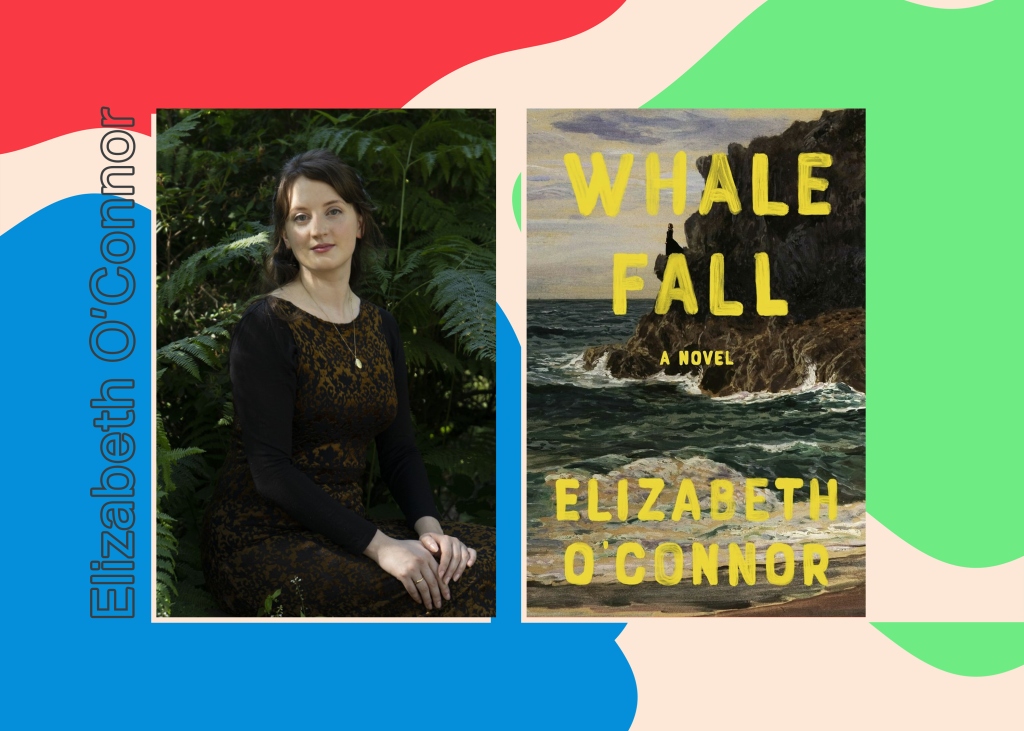Elizabeth O’Connor is the 2020 winner of the White Review Short Story Prize as well as the author of the debut novel Whale Fall. Based in Birmingham, England, O’Connor holds a PhD in English Literature from the University of Birmingham.
Whale Fall takes place on a small Welsh island where a local woman becomes entangled with two ethnographers hoping to learn more about the isolated culture there. O’Connor explores the tension between personal ambition and community integrity, capturing a woman’s struggle on the brink of transformative change.
We asked Elizabeth O’Connor to answer our recurring “A Life of Books” questionnaire so readers can get to know her better through the books that shaped her life.

Is there a book or series that, when you think back, helped define your childhood?
My first reading memory is a book of English folk-tales my mother bought for me. There was one story in particular, about a woman stealing a bone from a graveyard and using it to make soup, that stays with me. I had a book of Grimms’ fairy tales too, and for some reason loved a really horrible story about a dog and a cart (if you know, you know).
Another defining thing I remember is borrowing stacks of cassette tapes from my local community library, and listening to books as much as I read them. I can really vividly remember the voices on a tape of Fantastic Mr. Fox, and the rhythms of the dialogue. I think that sense of listening to how words and dialogue sound is still with me now.
Would you want any children in your life (yours or relatives’) to read those too? Or, what’s your philosophy on what children read?
I would! The folk tales were pretty weird and dark, and I like that they don’t pander to children with a too-simple language or worldview. I think that slight complexity and sideways look at the world is really compelling in children’s literature, and that children’s literature should be a bit challenging sometimes. In the U.K., children’s publishing is becoming pretty saturated with celebrities’ books. I don’t begrudge them it – everyone has a right to that kind of imaginative output, but it makes me wonder about what children are reading, and whose stories. I hope they also get a chance to read stuff that’s a bit more odd and unexpected.
I discovered some of my favorite writers in high school. What writers did you discover then? Either ones that were assigned for class or ones you found on your own.
Here’s an embarrassing secret: I had a picture of Thomas Hardy on my wall as a teenager! We read Tess of the D’Urbervilles in class and I just loved it – its politics, its descriptions of nature, the insane scene at Stonehenge. It’s stylistically so bold yet has so much to say.
I was lucky to grow up with an English teacher mother, who often helped me find other writers on my own. She introduced me to Angela Carter, who was another favourite at the time. Carter and Hardy are such different writers, but there might be a connection there with women, mythology, and a distinctive visual language.
Are there any books that you read while writing your debut that helped shape the direction you took your own book?
There were many! Sometimes they inspired the novel overall, and sometimes small details or objects within scenes. I read some of Rachel Carson’s lesser-known short stories when I was starting out – they study the ecology of the shore and finds narratives between humans, landscape and animals. That was a huge influence on how I wanted to drive Whale Fall’s narrative. Ursula K. le Guin’s ‘carrier bag theory’ was often in my head too – wanting to create a slower, more meandering structure. Style-wise, I looked to minimalist authors, like Claire Keegan and Elisa Shua-Dusapin, for balancing emotional depth and simplistic-seeming dialogue.
What is a book you’ve read that you thought, Damn, I wish that was mine?
I recently finished Traces of Enayat by Iman Mersal, about a poet retracing the life of the novelist Enayat al-Zayyat. What a book – experimental, palimpsestic, profoundly clever and so moving. A real masterclass.
What have you been reading lately that you can recommend to Debutiful readers?
I’m working my way through Hiroko Oyamada’s novels after reading Weasels in the Attic. I love her surreal sensibility, balanced against ordinary life, relationships, and the treadmills of capitalism. I think she’s an extraordinary writer of our times.
And, finally, I have to ask… I’m sorry. What’s next? But wait! Only use three words.
Bizarro dog-shows!